Smart Study Hacks: Discover (18) of the Best AI Tools for Students
Last Updated on August 5, 2023
Welcome to the world of smart study hacks! In today’s fast-paced and technology-driven era, students are constantly seeking innovative ways to enhance their learning experience. And that’s where the power of Artificial Intelligence (AI) comes into play. By leveraging cutting-edge AI tools, students can revolutionize the way they study, boost their productivity, and ultimately achieve academic success like never before. In this article, we’ll dive into the world of AI and unveil the best AI tools for student success. From intelligent note-taking apps to personalized study planners, these tools are designed to cater to the unique needs and learning styles of every student. Whether you’re a high school student preparing for exams or a college student juggling multiple assignments, these AI-powered tools will become your ultimate study companions. So, are you ready to unlock the potential of AI and take your studies to the next level? Let’s get started!
Understanding AI tools for student success
Artificial Intelligence (AI) refers to the simulation of human intelligence in machines that are programmed to think and learn like humans. This technology has made significant advancements in recent years, and its applications in the education sector are transforming the way students learn and study.
By using AI tools for student success, you can tap into a variety of benefits that can significantly improve your academic performance. These tools can help you understand complex concepts, organize your study materials, manage your time effectively, and even provide personalized recommendations for your learning journey.
Benefits of using AI tools for studying
There are several benefits to using AI tools for studying. Firstly, AI tools can help you save time by automating repetitive tasks such as organizing study materials or creating flashcards. This allows you to focus more on actual learning and understanding of the subject matter.
Secondly, AI tools can provide personalized recommendations based on your learning style and preferences. This means that you can receive tailored study plans, suggested resources, and even targeted feedback on your performance. By leveraging these personalized insights, you can optimize your study sessions and make the most out of your time.
Furthermore, AI tools can enhance collaboration among students. By utilizing features such as virtual study groups or interactive discussion forums, you can connect with peers, share knowledge, and learn from each other’s experiences. This collaborative learning environment can foster creativity, critical thinking, and problem-solving skills.
Popular AI tools for students
Now that we understand the benefits of AI tools for studying, let’s explore some of the most popular AI tools available for students. These tools cover a wide range of study needs and can be tailored to suit your individual learning style and preferences.
Intelligent note-taking apps
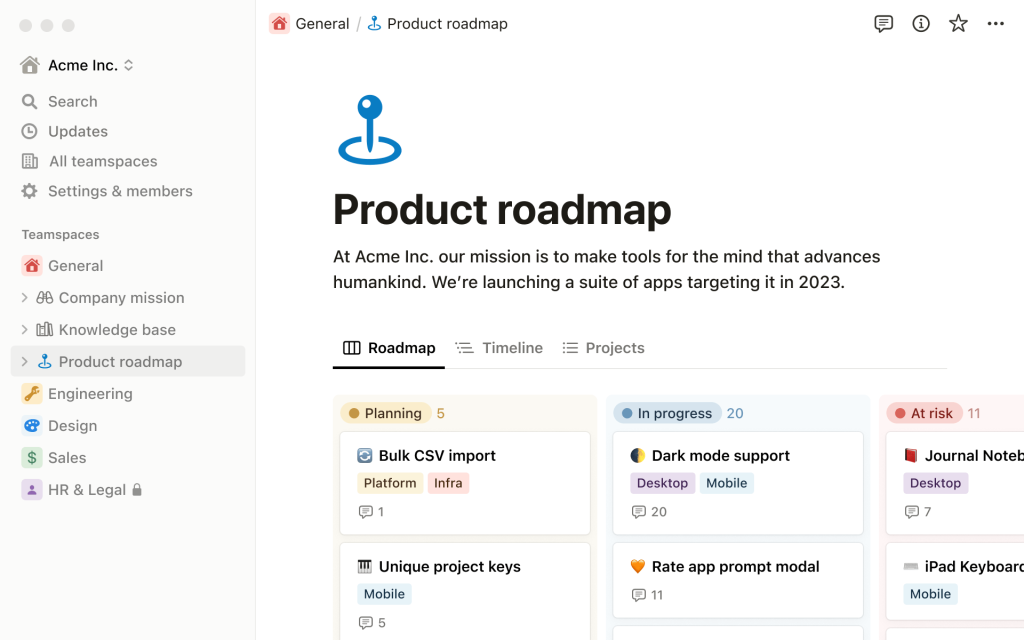
Intelligent note-taking apps powered by AI can transcribe your handwritten notes, convert them into digital text, and even provide search functionalities. These apps can also highlight important concepts, create summaries, and generate study guides based on your notes. Some popular note-taking apps include:
- Evernote– Evernote is a versatile note-taking app that allows you to capture ideas, create to-do lists, and save web articles for later reading. It uses AI algorithms to recognize handwriting and images, making it easy to search for specific notes or keywords. Additionally, Evernote allows you to sync your notes across multiple devices for easy access.
- Microsoft OneNote-OneNote is another powerful note-taking app that integrates seamlessly with other Microsoft Office applications. It offers features like handwriting recognition, freeform drawing, and collaborative note-taking. With its AI-powered search capabilities, you can quickly find specific notes or even search for text within images.
- Notion– Notion is a comprehensive workspace that combines note-taking, project management, and collaboration features. It allows you to create custom databases, organize your notes in a hierarchical structure, and collaborate with others in real-time. With its AI-powered automation features, you can streamline repetitive tasks and focus on your studies.
These AI-powered note-taking and organization tools can help you stay organized, retrieve information quickly, and streamline your study process.
Personalized study planners, time management and productivity
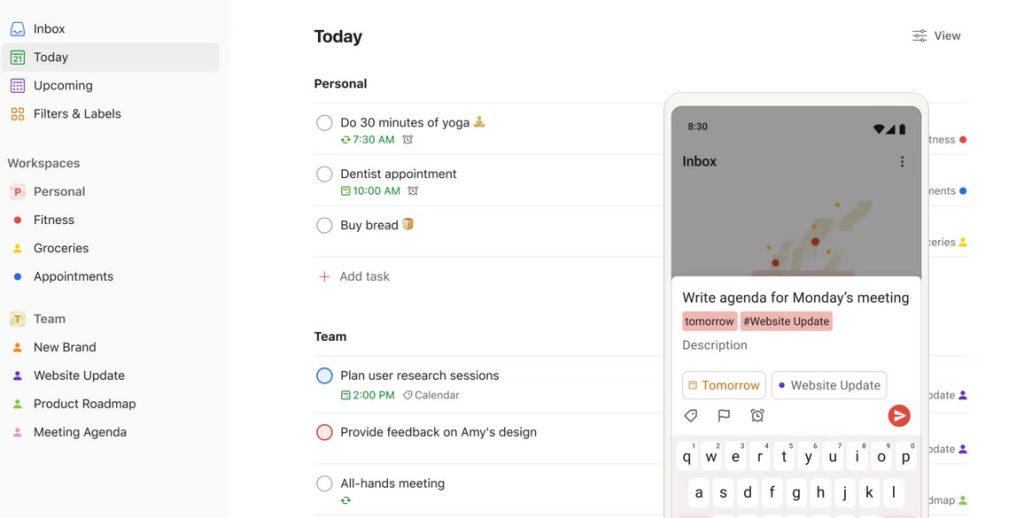
Keeping track of assignments, deadlines, and study schedules can be overwhelming for students. That’s where AI-powered study planners come in handy. These tools can create personalized study plans based on your course syllabus, analyze your study habits, and even adapt the schedule according to your progress. They can also send reminders for upcoming tasks and help you stay organized. Explore these study planners apps:
- My Study Life-My Study Life is a popular study planner app that helps you organize your classes, assignments, and exams in one place. It creates a personalized study schedule based on your course syllabus and sends reminders for upcoming tasks. With its AI-powered insights, you can identify time gaps and optimize your study sessions.
- Egenda-Egenda is a versatile study planner that allows you to track your homework, exams, and projects. It provides a visual overview of your tasks and deadlines, helping you prioritize and manage your time effectively. Egenda also offers AI-driven recommendations for study materials and resources.
- Todoist-Todoist is a task management app that helps you create to-do lists, set priorities, and track your progress. With its AI-powered smart scheduling feature, you can optimize your daily tasks and ensure that you stay on top of your assignments.
Language learning and translation tools
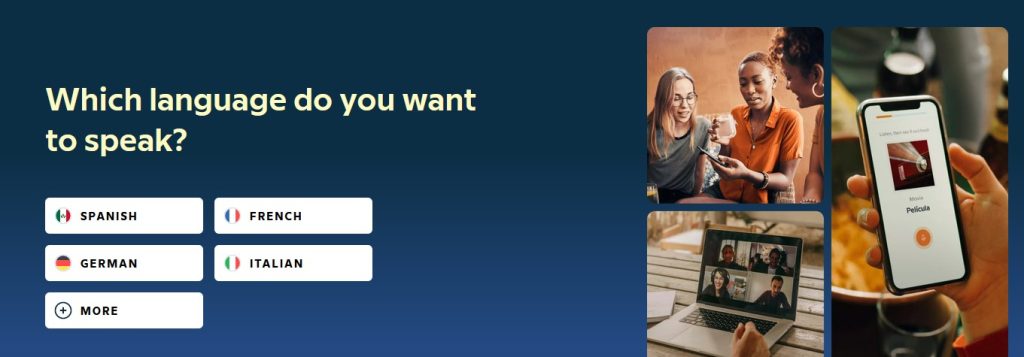
Learning a new language can be challenging, but AI tools can make the process much easier. Language learning apps powered by AI can provide interactive lessons, pronunciation guidance, and real-time feedback. These apps can also offer translation services, allowing you to understand foreign texts or communicate with people from different linguistic backgrounds. Popular language learning and translation tools :
- Duolingo– Duolingo is a popular language learning app that offers interactive lessons, vocabulary exercises, and pronunciation practice. It uses AI algorithms to adapt the difficulty level based on your performance and provides personalized feedback to help you improve.
- Babbel– Babbel is another language learning app that focuses on conversation skills. It offers a wide range of interactive lessons and dialogues, along with speech recognition technology to help you practice your pronunciation. Babbel also provides personalized review sessions based on your progress.
- Google Translate– Google Translate is a widely-used translation tool that supports a large number of languages. It uses AI algorithms to provide accurate translations for text, voice, and images. With its real-time translation feature, you can communicate with people from different linguistic backgrounds seamlessly.
By utilizing these AI tools for language learning and translation, you can enhance your language skills, practice pronunciation, and communicate effectively in different languages.
AI tools for research and writing assistance tools
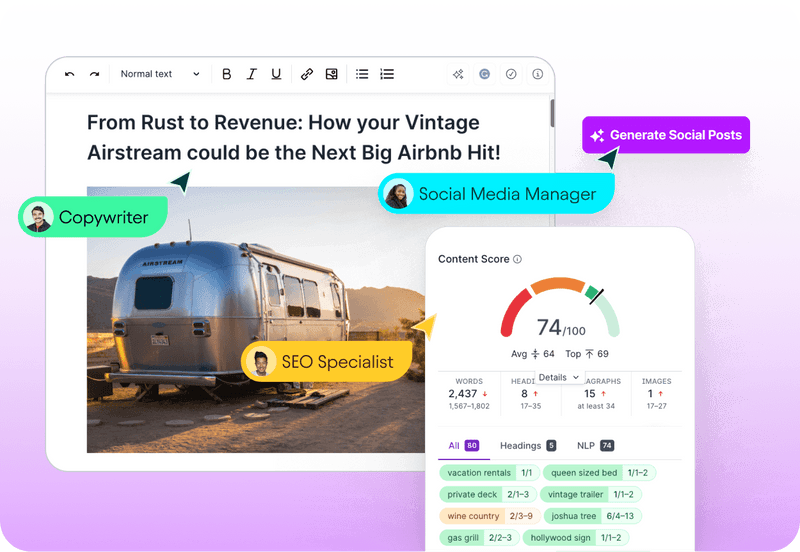
When it comes to research and writing, AI tools can be a game-changer. These tools can help you find relevant academic sources, generate citations, and even provide suggestions for improving your writing style. They can also check your work for grammar and spelling errors, ensuring that your assignments are polished and error-free. Here some of the top research and writing assistance tools:
- Jasper -Jasper is an AI writing assistant that helps you create high-quality content quickly and easily. Jasper can write a variety of content, including blog posts, emails, social media posts, product descriptions, and more.Jasper uses artificial intelligence to understand your instructions and generate text that is both accurate and engaging. You can provide Jasper with a few keywords or a brief outline, and Jasper will take care of the rest.
- ChatGPT is an AI-powered chatbot developed by OpenAI that can generate human-like text based on context and past conversations. ChatGPT can be used for a variety of purposes, including:
- Generating creative text formats, such as poems, code, scripts, musical pieces, email, letters, etc.
- Answering your questions in an informative way, even if they are open ended, challenging, or strange.
- Brainstorming ideas and solutions, by generating text that is relevant to your topic and that explores different possibilities.
- Helping you learn new things, by generating text that is informative and educational.
- Grammarly– One of the most popular writing assistance tool that checks your work for grammar, spelling, and punctuation errors. It also offers suggestions for improving clarity, conciseness, and style. With its AI-powered algorithms, Grammarly provides real-time feedback to help you write with confidence.
- Undetectable -Undetectable.ai is a service that uses AI to rewrite content so that it is undetectable by AI content detectors. This means that you can use Undetectable.ai to generate content that is indistinguishable from human-written text, even if it was originally created by an AI. Aside from students this is also a great tool for writers, bloggers, researchers, and content creators who want to generate unique and high-quality content that is guaranteed to be undetectable by AI.
- Zotero-Zotero is a powerful research tool that helps you collect, organize, and cite academic sources. It integrates with your web browser and allows you to save articles, PDFs, and other research materials with a single click. Zotero also offers AI-driven recommendations for related sources and helps you generate citations in multiple formats.
- EndNote-EndNote is a comprehensive reference management tool that allows you to store, organize, and annotate your research materials. It offers AI-powered search capabilities, making it easy to find and import relevant sources into your projects. EndNote also helps you generate citations and bibliographies in various styles.
Streamline your research process, improve the quality of your writing assignments, and save time by using these AI research and writing tools.
Test preparation and revision tools
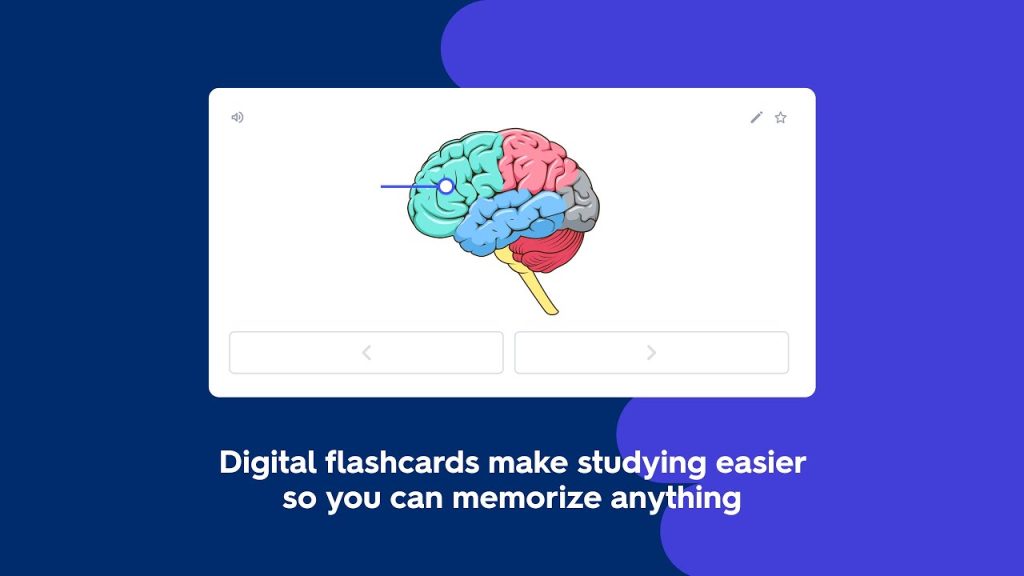
Preparing for exams can be stressful, but AI-powered test preparation tools can help you tackle this challenge with confidence. These tools can provide practice questions, simulate exam conditions, and analyze your performance to identify areas for improvement. They can also offer personalized study recommendations based on your test results, helping you focus on the topics that need the most attention. Popular test preparation and revision tools include:
- Khan Academy-Khan Academy offers a wide range of educational videos and practice exercises for various subjects. It uses AI algorithms to adapt the difficulty level based on your performance and provides personalized recommendations for further study. Khan Academy also offers full-length practice tests for standardized exams like the SAT.
- Quizlet-Quizlet is a versatile study tool that allows you to create flashcards, quizzes, and study games. It uses AI algorithms to adapt the practice sessions based on your progress and provides instant feedback. Quizlet also offers a vast library of user-generated study materials for different subjects.
- Prezi-Prezi is a presentation software that allows you to create engaging visual presentations. It offers AI-powered templates and design suggestions to help you create impactful slides. Prezi also allows you to collaborate with others in real-time and present your work with confidence.
How to choose the right AI tools for your study needs
With so many AI tools to choose from, it’s essential to go with the ones that align with your study needs and preferences. Here are some factors to consider when selecting AI tools for your studies:
1. Identify your specific study requirements: Determine the areas where you need assistance the most, whether it’s note-taking, time management, language learning, research, or test preparation.
2. Read reviews and compare features: Research different AI tools in your chosen category, read user reviews, and compare their features and functionalities. Look for tools that have positive feedback and offer the features that are essential to your study needs.
3. Consider your budget: While some AI tools are free, others may require a subscription or one-time payment. Evaluate your budget and choose tools that provide the best value for your money.
4. Try before committing: Most AI tools offer free trials or basic versions. Take advantage of these opportunities to test the tools and determine if they meet your expectations before committing to a paid subscription.
Remember, the goal is to find AI tools that complement your learning style and enhance your study experience. Take the time to explore different options to find the tools that work best for you.
Tips for using AI tools effectively
To make the most out of AI tools for your studies, here are some tips to keep in mind:
1. Familiarize yourself with the features: Take the time to explore and understand the features of the AI tools you’re using. This will help you leverage their full potential and maximize their benefits.
2. Customize the settings: Many AI tools allow you to customize settings according to your preferences. Adjust the settings to align with your study goals, learning style, and preferences.
3. Regularly update and sync your data: Ensure that your data is regularly updated and synced across different devices. This will ensure that you have access to your study materials and progress wherever you go.
4. Seek help and support: If you encounter any issues or have questions about using AI tools, don’t hesitate to reach out to the tool’s support team or seek help from online communities. They can provide guidance and troubleshooting tips.
By following these tips, you can harness the power of AI tools and optimize your study routine for better results.
Conclusion: Embracing AI tools for students
In conclusion, the world of AI offers a multitude of tools that can revolutionize the way students study and achieve academic success. From intelligent note-taking apps to personalized study planners, AI tools cater to the unique needs and learning styles of every student. By embracing the power of AI, students can enhance their productivity, organize their study materials, manage their time effectively, and even receive personalized recommendations for their learning journey.
When choosing AI tools for your studies, consider your specific study needs, read reviews, compare features, and take advantage of free trials to find the tools that work best for you. Familiarize yourself with the features, customize the settings, and regularly update and sync your data to make the most out of AI tools. Seek help and support when needed, and follow tips for effective usage.
Incorporating AI tools into your study routine can transform the way you learn and help you achieve academic success like never before. So, unlock the potential of AI and take your studies to the next level!
FAQ
AI has found numerous applications in the field of education, enhancing both teaching and learning processes. Some of the key uses of AI in education include:
Personalized Learning: AI can analyze students’ learning patterns, strengths, and weaknesses to tailor educational content and pacing to each individual’s needs. This helps students learn at their own pace and level, promoting better understanding and retention.
Adaptive Learning Systems: These systems adjust the difficulty and type of content based on a student’s progress, ensuring a challenging yet achievable learning experience.
Automated Grading and Feedback: AI-powered tools can automatically grade assignments, quizzes, and tests, providing instant feedback to students and saving educators time on administrative tasks.
Virtual Tutors and Assistants: AI-driven chatbots and virtual tutors can provide instant help and guidance to students, answering questions and offering explanations around the clock.
Language Learning: AI can provide language learners with real-time feedback on pronunciation, grammar, and vocabulary usage through speech recognition and natural language processing.
Content Creation: AI can generate educational content, including quizzes, study guides, and interactive simulations, saving educators time and ensuring consistent quality.
Predictive Analytics: By analyzing past data, AI can predict students’ performance and identify those at risk of falling behind, allowing educators to intervene with timely support.
Automated Administrative Tasks: AI can streamline administrative processes like scheduling, resource allocation, and course planning, allowing educators to focus more on teaching.
Data-Driven Insights: Educators can use AI to analyze large volumes of data to gain insights into teaching methods, curriculum effectiveness, and student engagement, leading to continuous improvement.
Virtual Reality (VR) and Augmented Reality (AR): These technologies, often combined with AI, can create immersive learning experiences, allowing students to explore complex concepts in a more interactive way.
Identifying Plagiarism: AI tools can scan and compare student work against a vast database to identify potential instances of plagiarism.
Education Research: AI can assist researchers in analyzing educational trends, conducting experiments, and deriving insights from vast datasets.
Professional Development: AI can recommend relevant resources and courses for educators to enhance their teaching skills and stay updated with the latest pedagogical methods.
Assistive Technology: AI-powered tools can help students with disabilities by providing text-to-speech, speech-to-text, and other assistive features that cater to individual needs.
Collaborative Learning: AI can facilitate collaborative learning by matching students with similar learning goals or interests, fostering group discussions and projects.
Grammarly
Jasper
Undetectable
Zotero
EndNote



